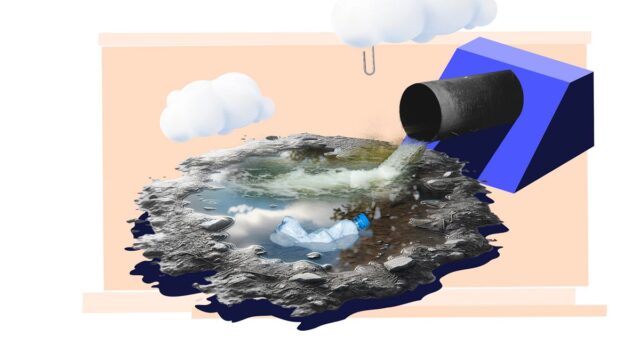European waters have been increasingly polluted for decades, mainly due to poor management in agriculture, industry and wastewater treatment. In this crash course we analyze the alarming statistics and study what the EU is doing about it.
Water is nature’s most precious resource and affects our daily lives at all levels. In ‘Water Matters’ we look in detail at the complex issues of water management in Europe, from fighting pollution to responding to floods and droughts. Watch our one-minute crash course in the video above for a dynamic explanation of the causes, consequences, and challenges involved.
Months of unusually abundant rain have replenished groundwater levels in many parts of Europe, countering the threat of shortages at least in the short term. However, E.Europe continues to face numerous challenges in relation to this essential resourcepollution being one of the most serious.
Groundwater pollution has been increasing for decades
Decades of mismanagement have allowed our rivers, lakes and seas become contaminated from various sources, such as agriculture, industry and wastewater from outdated sanitation treatment infrastructure. Climate change, the decline in biodiversity and the degradation of ecosystems have exacerbated the problem.
Water pollution poses important risks to our health. It spreads diseases such as cholera and dysentery and can cause other long-term illnesses. And you can also have negative consequences for the environment and the economy, in terms of lost tourism income and reduced agricultural productivity. It also affects industries that depend on clean water sources.
Some of the statistics are discouraging. For example, 28% of European groundwater is contaminated. That’s where most of our drinking water comes from.. It costs utility companies billions of euros to remove nitrates and pesticides caused primarily by modern agricultural practices.
Pollution also comes from urban environments, plastics, wastewater and cooling water from power plants. Runoff inevitably ends up in our waterways, as another alarming figure reveals: 22% of Europe’s streams, rivers, lakes and seas are affected.
Statistics in detail (Directorate General for the Environment of the European Commission)
- The global environmental costs of nitrogen pollution are estimated between 70,000 and 320,000 million euros per year in the EU.
- In 2022, the 85.7% of bathing water areas of the EU were rated excellent and 95.9% of them met the minimum water quality standards.
- He Unsafe water kills more people every year than war and all other forms of violence together.
- 81% of marine waters, 31% of coastal waters, 36% of rivers and 32% of lakes in the EU are eutrophic, that is, they have excessive growth of plants such as algaecaused by excess nitrates, which in turn suffocate other forms of plant and animal life.
- 22% of surface water masses and 28% of groundwater bodies in Europe are highly affected by the diffuse pollution from agricultureboth for nutrients and pesticides.
- Every year they reach Mediterranean Sea 230,000 tons of plastics from terrestrial sources; besides, 20,000 tons come from maritime activities.
- Europeans are worried about pollution: 69% consider it the main threat to its water supply.
Recover European waterways
Addressing these problems requires dynamic and wide-ranging responses from multiple sectors. As a starting point, pollution must be combated at its source through sustainable agriculture, better wastewater treatment, less plastic waste and the restoration of ecosystems.
The path to solutions is laid out in the general policies of the European Commission. The EU Water Directive regulates lakes and rivers, while the Drinking Water Directive reinforces the quality of tap water. He European Green Deal includes a zero pollution action plan to improve pollution prevention legislation.
The measures adopted, in detail (Directorate General for the Environment of the European Commission)
Be aware of water
However, we cannot limit ourselves to legislating to solve a problem that has been developing for decades. Citizens can also do their part by recycling and minimizing single-use chemicals and plastics by participating in cleanup initiatives and, in general, being more aware of the use of water. A fundamental change in mindset and behaviors will go some way to ensuring a clean and healthy water supply for generations to come.








